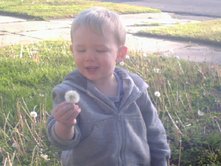
My sermon from Sunday, September 28, weaved two stories together... Enjoy this narrative approach to this particular message. Again, this art is from http://diglib.library.vanderbilt.edu/act-search.pl I know several of my faithful readers told me about their appreciation of that link in my last post. :)
It's quiet, and he has a choice. He can smell the flowers blooming in the garden. The fragrance of orchids and lillies and lilacs and roses fills his nostrils... and it smells good. He can see the large brown trunks, beaming up into the sky with large green leaves and juicy fruit hanging of each branch... and it looks good. He feels the grass between his toes on the ground... and it feels good. The wind blows through the orchard and whips through his hair, breaking the silence... and it sounds good. But he still has a choice. And she's standing there, blinking her eyes, holding something out for him.
Again, another man has a choice. He feels the dirt path between his toes on the road... and it does not feel good. He smells the sewer of human waste in the streets flowing past him... and it does not smell good. He sees prositutes walk around him, lepers crying, the blind begging... and it does not look good. The wind blows through the town, giving him chills... and it does not feel good. But this second man, has a choice too. And the people are standing around him, blinking their eyes, wondering what he will choose.
The first man, standing about to make a choice, reaches out his hand to the woman. He takes the fruit she offers him. And all the sudden- EVERYTHING changes. He was disobedient. He chose himself. He chose what he wanted over what God wanted. He wanted to be like his God. He wanted to rule himself and control his future, be who he wanted to be. He was human, made in God's image, and yet he exalted himself. He became disobedient, seeking life forever... and now he would die.
The second man, standing, about to make a choice, reaches out his hand. He takes the prositute, the leper, and the begger in his hand. And all the sudden- EVERYTHING changes. He was obedient. He chose God. He chose what God wanted, over how he felt... over the "not good" experienced around him. He let God rule him, he allowed God to lead him into a future, even when it involved suffering. For he knew God could make the human more than a human could ever make themself. He was God, but did not seek to be exalted. He was found in human form, and humbled himself. He became obedient, and became a servant to all... and although he would die, he would truly live.
The first man, made a choice to be disobedient. He was made in the image of God and yet in his attempt to be like God, he exploited. He demoralized. He hurt. And God was saddened. God condemned him to suffering. So that everyone would curse. And the good smell, the good sounds, the good touch, the good sight... would now be seperated from God. All of creation was now seperated from the good God. And no tongue would confess to Adam's greatness... but he would only receive condemnation.
The second man, made a choice to be obedient. He was God, and in his choice, he did not think being equal to God was something to use for his own benefit. He gave up. He denied himself. He touched the untouchable. And God was pleased, exalting him, giving him a name above every name. So at the name of Jesus, every knee should bend and every tongue confess, "Jesus Christ is Lord."
Adam and Christ... Quite the difference. One chose himself over God. The other chooses God over himself. One disobeyed God, the other obeyed God even to the point of death. One was shamed. The other was exalted. Christ becomes a model for all of us of who we should be. And Adam, of whom we should not.
Much of what I said is an echo of the passage in Philippians 2:1-11. And this passage is a continuation of what we talked about last week in Philippians chapter 1. Paul continues to talk to the Philippians about living a life that brings honor to the good news of Christ Jesus.
Paul gives the Philippians a series of 4 questions about their life in Christ: 1) Does being in Christ strengthen you? In other words, does a relationship with Christ make you stronger than if you were alone? 2) Does the love of Christ comfort you? In other words, when you are hurting, when you are suffering... does the love of Christ console you? 3) Do you share in the same spirit of Christ? In other words, do you have the same spirit Christ has, a spirit that strenthens those around you and gives comfort to others? 4) Do you have the same mercy and kindness as Christ? In other words, do you give others the same mercy and kindness Christ gives you? And when someone mistreats you (as we know Christ was mistreated), do you still extend mercy and kindness?
And if you can answer yes to any of these questions, Paul says- make me happy by doing 7 things: 1) Have the same thoughts. 2) Share in the same love. 3) Have one mind and one purpose. 4) Do not let selfishness or pride be your guide. 5) Humble yourself. 6) Give more honor to others than yourself. 7) Be interested in others lives.
Those are pretty and flowery words, and all. But what in the world does that mean? It makes your head spin and you want to fall asleep listening (or reading) those 7 things we should do. But Paul is brilliant... because he not only tells us what we should do, but he also gives us a beautiful example of how we are to BE LIKE Christ. We are to follow the ultimate model given to us, in Christ Jesus.
For if we go back to the first man, and his choice. We see a disaster. Because we see that his story. His sad, sad story... is really our story.
And we desperately need an example so we can remedy our story. So we can rememdy our choice. Our story where we were the ones who reached out our hand and took the frut. Our story where we were the ones who so desperatly wanted to be a god. Our story where we were the ones who wanted to exalt ourselves and make a great name for ourself. Our story where we strut our stuff, hoping to be as great as we fake to everyone around us.
Adam's story. Is our story. We are that first man, who made the wrong choice, who disobeyed, who was condemned.
And so Paul brilliantly tells us about another man, a man who was not like Adam or us. This man did not think strutting his Godly self for everyone to honor him was something he should do. Now that's crazy! If I had an extra talent that could get me attention, wouldn't I do it?
But wait... this man, gave up his place with God and made himself nothing. That is even crazier! You could be a God among men... and you chose to be nothing?!
But wait... this man, became a servant, humbled himself. Became a slave. Are you nuts? You could be treated like a King, not a King's servant!
But wait... and this man, was obedient to God, even to death. Woah! Stop this craziness! Obedience to die. That's a little extreme. I'm trying to live longer by being the best, the most important, the wealthiest, the most gorgeous...
But wait. This man truly lived.
(silence)
The war of the two stories silences.
The war of the 2 men, about to make choices, falls silent.
There's only love. There's only mercy. Your sins are gone, without a trace. There's nothing left now. There's only grace. And then I played the song "Only Grace" by Matthew West. And I had them think throughout the song... who's story is most like your story? The first man who made a choice, a disobedient choice? Or the second man, who made a choice to be obedient, even to death?
There's only grace. There's only love. Our two stories of Adam and Christ have silenced.
The dirt has washed away, and now it's clear. There's only grace. There's only love. There's only mercy and believe me, it's enough. Your sins are gone, without a trace. There's nothing left, there's only grace.
The dirt has washed away, and now it's clear. There's only grace. There's only love. There's only mercy and believe me, it's enough. Your sins are gone, without a trace. There's nothing left, there's only grace.
And now you have a new life! A life where you are to act like this Christ. And Paul says, follow the model of Christ. Be like Christ. Do what Christ did.
.... Because now...
You're the one standing there, with a choice. You can smell the fragrance of the fall breeze. It's almost October. You can see the interior of this worship bulding... wooden arches of an A-frame, a table before you that reads "This Do in Remembrance of Me." You can feel the hard, wooden pew beneath you... and perhaps a cushion. You can see the community of faith around you... and we're standing there, blinking our eyes, waiting to see what you will choose.
Will you take the hand of the prostitute, the leper, the beggar in your hand?
Will you be obedient and chose God over yourself or how you feel?
Will you humble yourself, become obedient... even if it means death?
Will you be a servant to all?
Will you follow the example of this Christ, the one who is very different than you or Adam?
What happened yesterday, has disappeared. The dirt has washed away and now it's clear. There's only grace. There's only love. There's only mercy and believe me, it's enough.
Choose to be like the example Christ left for us. Choose this strange way of living where you allow yourself to become meaningless and give up your claim and right to anything. Choose this strange and ironic way of living where you deny yourself, put others above yourself, and become a servant. Choose this strange, ironic, and astonishing way of living where you give up what you want, become obedient to the Father, even to death, and care for others.
As we stand there, blinking our eyes to see what you will choose, choose to embody this Christ. Choose to become Christ's hands, feet, mouth, and more by being like him, and being a lowly servant.
Prayer: Dear Lord God, again we come before you and cry out to you. We know our story is the story of Adam. We are disconnected from you because of our disobedient choice and we know it. We feel it in our bones. Thank you for giving us Christ, someone who chose to be obedient, someone who lived this strange, ironic, and astonishing way- different from a what a whole world of Adams has ever known or experienced. Show us how to make choices like Christ did. Show us how to become meaningless so that you might make us something. Show us how to put others above ourself and be a servant. Your church wants to make the right choices. Show us how and then give us the strength and the guts to do it. We love you. And we bow our knee and confess together, "Jesus Christ is Lord." Amen.





